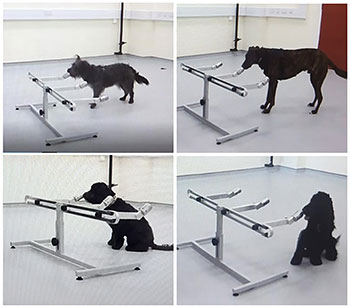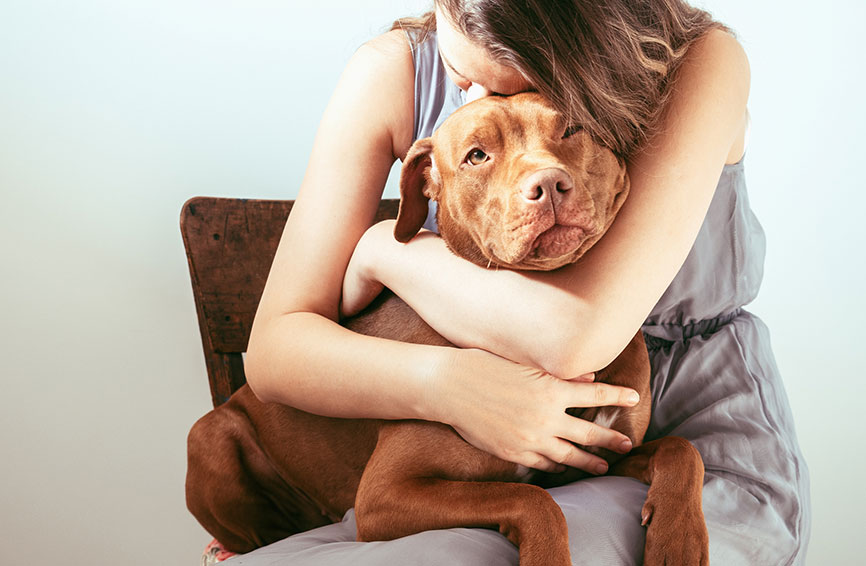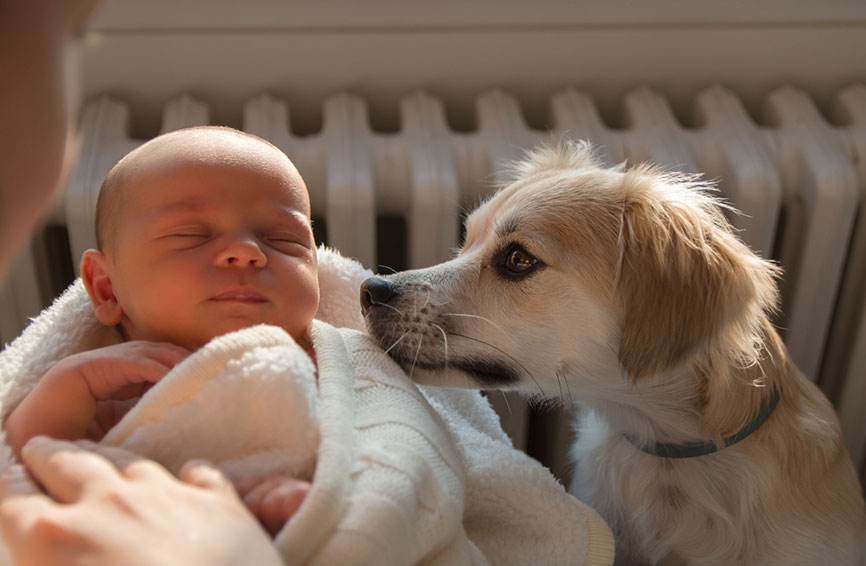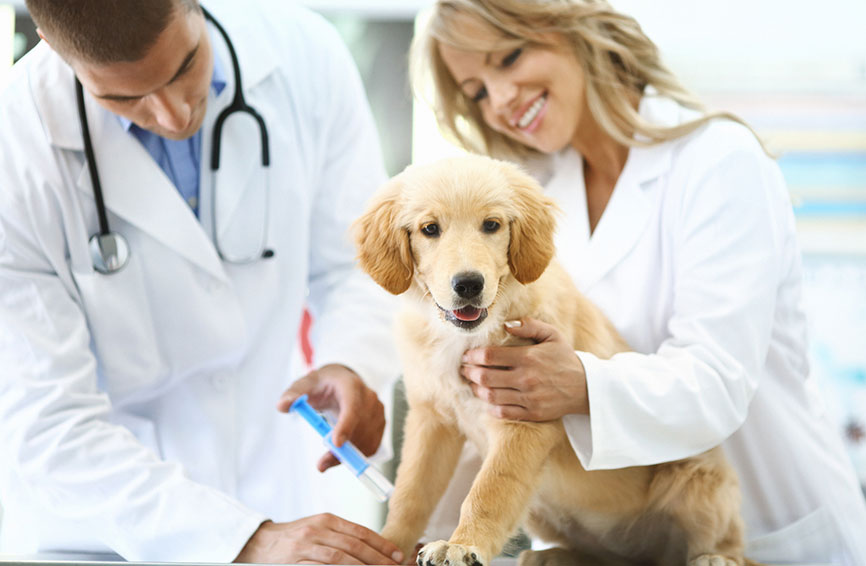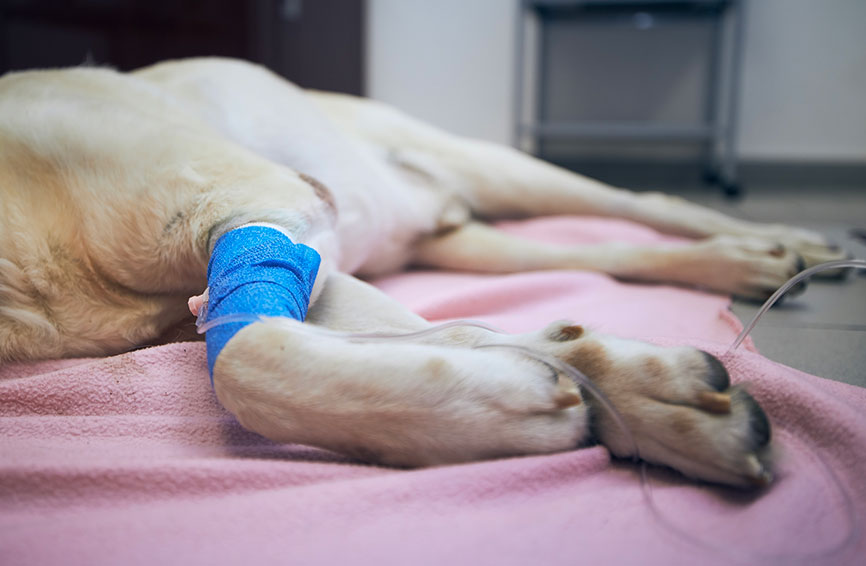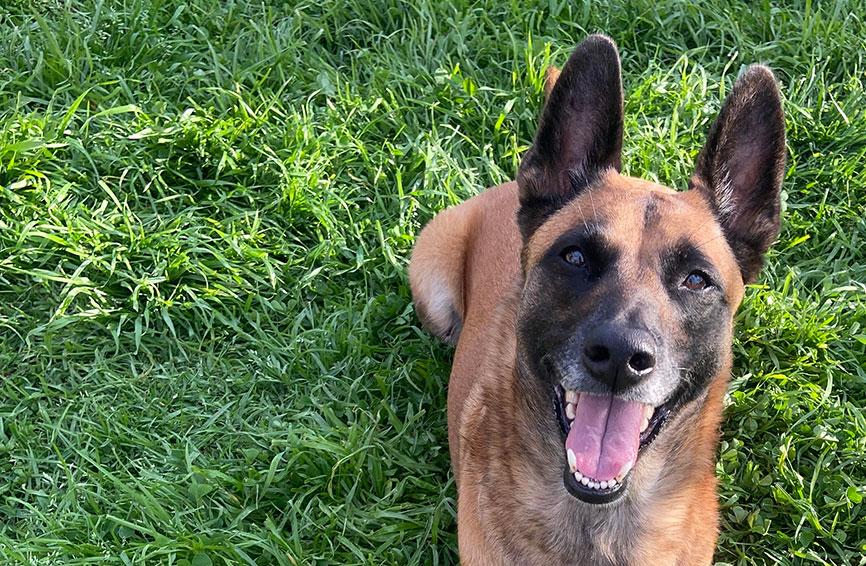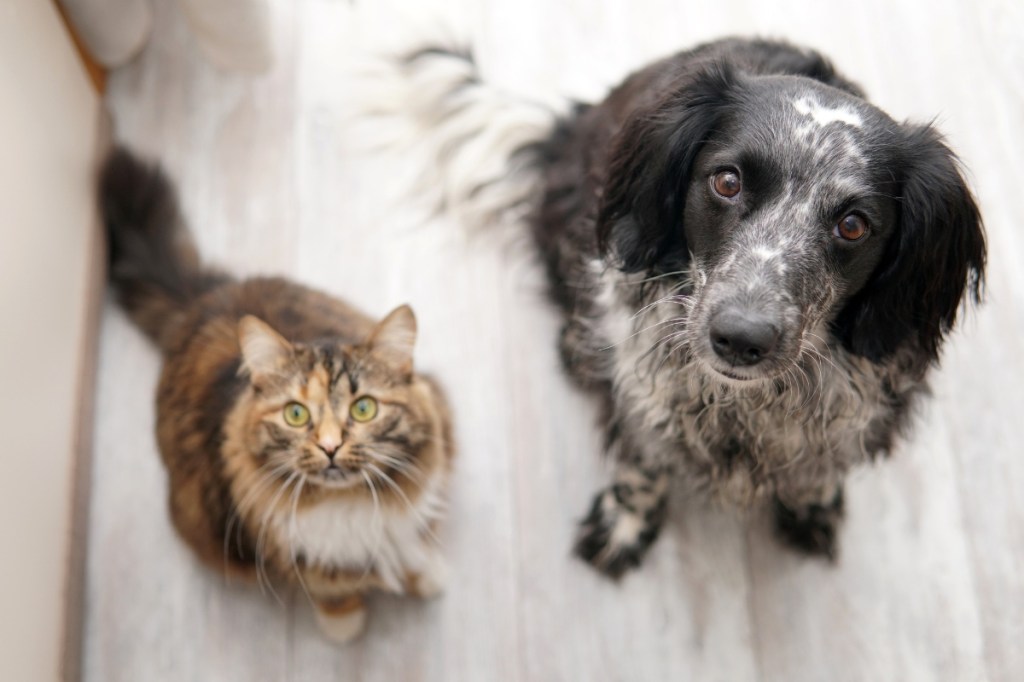Key Takeaways
- When we are anxious, we emit unique smells in our sweat and breath.
- In one study, dogs were accurately able to detect the difference between a neutral odor and one from a human who had undergone a stressful task.
- The study’s results could have applications in training dogs to be more effective emotional support or service dogs.
Table of Contents
Anecdotally, lots of dog parents have reported that their pups seem to understand when their human family members are feeling upset. They may come up and nuzzle you or be extra protective.
New research says you are not imagining it – dogs really are able to smell psychological distress on their humans. Your breath and sweat literally smell differently when you are stressed, and your furry friend can tell.
In a recent article posted on the research site PLOS One, researchers from Queens University, Belfast, Ireland, studied whether dogs could distinguish between a normal or “baseline” human odor and a smell where the person was given a stress-inducing task beforehand.
Out of 720 trials, the dogs in the study reacted to the stress sample accurately 94 percent of the time.
“Dogs were able to discriminate, with a high degree of accuracy, between human breath and sweat samples taken at baseline and when experiencing psychological stress,” the study’s authors wrote.
When humans are feeling anxious, they experience physiological changes, including the release of hormones into the bloodstream, plus an increased heart rate, blood pressure, and respiration, with suppression of digestion. These stress reactions cause different odors to emanate from our breath and sweat.
Just as dogs can be trained to detect medical conditions such as epileptic seizures, low blood sugar in diabetics, cancer, and even COVID, they can also learn to know when their human is upset based on these odors.
“These results add to our understanding of human-dog relationships and could have applications to Emotional Support and Post Traumatic Stress Disorder (PTSD) service dogs,” the researchers wrote.
How the study was conducted
Thirty-six participants’ samples were presented to four dogs across 36 sessions. The humans provided one breath or sweat sample without stress and another swab was taken after a difficult math task. The post-quiz samples were tested to ensure they contained stress hormones.
In the first sessions, dogs were presented with a stress sample alongside two “blanks” – material without breath or sweat. If the dog responded to the stress sample with an “alert behavior” such as showing excitement, it was considered to have correctly identified the stress sample. A clicker was activated, and the dog was rewarded with food. If the dog chose the wrong or neutral sample, no reward was given.
In the second round of testing, the four dogs were presented with the person’s normal scent, the stressed scent, and blanks (no scent). Almost every time, each dog correctly reacted to the sample from the person who had experienced anxiety.
“Dogs were able to discriminate, with a high degree of accuracy, between human breath and sweat samples taken at baseline and when experiencing psychological stress.”
–the study’s authors
Further study is needed
While the researchers concede that a larger study is needed, they see potential for service or emotional support dogs. Currently, service dogs are trained to respond primarily to visual cues, so utilizing their strong sense of smell could make them even more effective in responding to their owners’ needs.
Recent studies also suggest that humans and their household dogs experience “emotional contagion,” meaning people suffering from chronic stress may cause their dogs to feel anxious too. This makes it all the more important that we take care of our own mental health, to keep it from spreading to our beloved pooches.
So, the next time your dog makes eye contact or gently paws at you, they may be sensing your fear and be trying to calm you. Take a moment to assess your mood, breathe deeply and take your pup for a relaxing walk.

